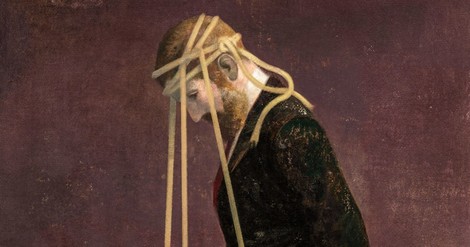Your podcast discovery platform
Curious minds select the most fascinating podcasts from around the world. Discover hand-piqd audio recommendations on your favorite topics.

piqer for: Global finds Health and Sanity Doing Good
Bangalore-based Rashmi Vasudeva's journalism has appeared in many Indian and international publications over the past decade. A features writer with over nine years of experience heading a health and fitness supplement in a mainstream Indian newspaper, her niche areas include health, wellness, fitness, food, nutrition and Indian classical Arts.
Her articles have appeared in various publications including Mint-Wall Street Journal, The Hindu, Deccan Herald (mainstream South Indian newspaper), Smart Life (Health magazine from the Malayala Manorama Group of publications), YourStory (India's media technology platform for entrepreneurs), Avantika (a noir arts and theatre magazine), ZDF (a German public broadcasting company) and others.
In 2006, she was awarded the British Print-Chevening scholarship to pursue a short-term course in new-age journalism at the University of Westminster, U.K. With a double Masters in Globalisation and Media Studies from Aarhus Universitet (Denmark), University of Amsterdam and Swansea University in Wales, U.K., she has also dabbled in academics, travel writing and socio-cultural studies. Mother to a frisky toddler, she hums 'wheels on the bus' while working and keeps a beady eye on the aforementioned toddler's antics.
Why You Believe More Than You Reason
In this age of fake news, alternative facts and WhatsApp silos, can anything be more appropriate than trying to understand why beliefs often trump reason? Oh well, couldn’t resist that pun! How did we come to be like this? Why is the human mind not "programmed" to think rationally? Why on earth can't we think straight? Fascinating, isn't it?
This article by Pulitzer prize-winning author Elizabeth Kolbert expertly brings together these and many other questions on the "limitations of reason", and extracts answers from new cognitive research on the evolution of the human mind.
In the first part of the article, Kolbert takes the reader through several psychological studies, some dating as far back as 1975, that tried to understand this puzzle. Disconcertingly, researchers have noted again and again that even if people's beliefs are "totally refuted", they fail to change them. And once impressions are formed, they, quite literally, are never erased. For somebody like me, who believes in the grand scheme of logic and reason, these dry conclusions were rather dispiriting. I almost stopped reading.
And yet I continued, because I had the same question in my mind, which fortuitously, the author also had. How did this happen? The second part of the article throws up some answers, of which I mention below the one I found most intriguing.
In the new book The Enigma of Reason, two cognitive scientists argue that reason is an evolved trait. It evolved, not to help us solve logical problems or draw straightforward conclusions from available data, but to resolve problems that arose because of living in groups that needed to cooperate with each other. Two other scientists put it more sharply. Reason evolved to "prevent us from getting screwed." Hunter-gatherers survived together not by reasoning clearly, but by winning arguments. Hence the "lopsidedness" of reason in the brain. Simply put, the human mind's reasoning capability has not caught up with the changed environment, yet.
